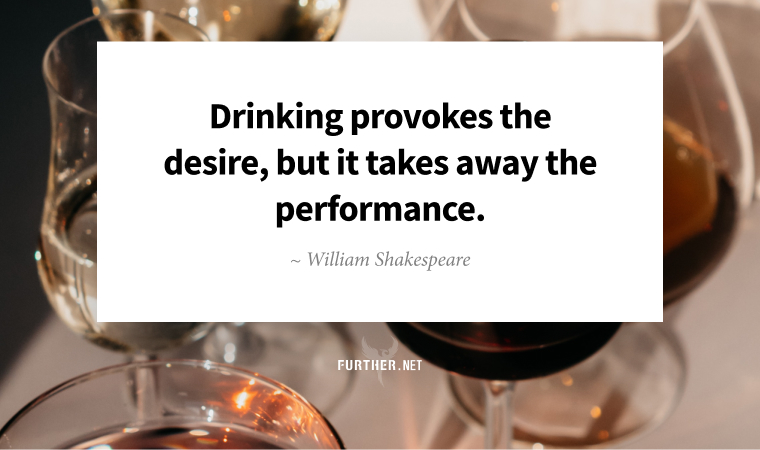Is It Too Late to Live the Life You Want? 
When we were young, they called us cynical slackers. We definitely proved them wrong about the slacker part. We're the hardest working cohort in the labor force (although underappreciated), and the most entrepreneurial. As for cynical, well, there have been good reasons for that. But we're also pragmatic as hell, and we have an uncommon level of resiliency in the face of adversity. But come on ... our working lives have spanned the "jobless" recovery from the early 1990s recession, the dot-com bubble burst, 9/11, The Great Recession, and now COVID-19. It's been a bit much, to say the least. The pandemic may go down as the most inopportune thing of all for some now that we're in our 40s and 50s. Gen X workers are feeling the brunt of unemployment concerns during the pandemic according to a survey from Generation, a non-profit focused on employment issues. The likely reason? Ageism, something we discussed in Further a couple years ago. Data reveals that once you're over 50, odds are the decision to leave your job won't be yours. So when COVID-19 layoffs hit, the "getting a new job" process has allowed for largely hidden ageist hiring decisions to rise: Age is viewed as a large hurdle to employment by employers and employees alike; 71% of those 45 and over who were seeking a job believed their age is an obstacle. Employers also generally viewed those above 45 as having weaker skills compared with younger candidates despite having the same on-the-job performance. The "weaker skills" thing is an obvious lie. Translate that to "higher salary" and you'll see the true motivation for hiring someone younger. And that's so shortsighted given the experience and efficiency people our age bring to the job. Cynical ... yeah, maybe so. According to a new Fast Company-Harris Poll, Americans aged 45-54 are the least likely to see wealth as attainable. Only 47% [of those aged 45-54] say they agree that it's possible to become wealthy or a part of the elite class. That's compared to 60% of 18- to 34-year-olds and 56% of 35- to 44-year-olds. Baby boomers were also more likely to agree that wealth is achievable: 52% of 55- to 64-year-olds and 57% of people over 65 said so. Of course, it's dangerous to generalize at the generational level. After all, the survey actually reveals that almost half of 45-54 year olds think wealth is achievable. And that's likely more of a commentary about the evolution of American society during our lifetimes than anything. So yes, some people in our age group are suffering, and I hope that doesn't include you. Contrary to the popular media narrative, there are a lot of Gen Xers who have led the charge into digital business models that weathered the pandemic just fine. For example, new research shows that most of the people who earn a living like I do (digital content entrepreneurs) are members of Generation X. So in addition to being the most entrepreneurial generation, many of us are adapting to a digital skill set just fine, thank you. Fact is, though, wealth in the traditional sense isn't what drives us. It's freedom -- the ability to do the work we want, from where we want, and as we see fit. If you haven't taken our free Future Freedom course yet, check it out. The personal enterprise approach to taking control of your income and living the life you want may be just what you're looking for. Click here to read the first lesson. You'll get the rest of the lessons automatically delivered by email. Keep going- Brian Clark P.S. I've been watching season two of the film documentary series The Movies That Made Us on Netflix. Did you know Eric Stoltz was originally cast as Marty McFly in Back to the Future? And they actually filmed for 6 weeks with Stoltz as the lead before they brought in Michael J. Fox and started over? 🤯 P.P.S. New to Further? Join us here. Swimmer's Brain It's no secret that aerobic exercise can help stave off some of the ravages of aging. But a growing body of research suggests that swimming might provide a unique boost to brain health. Swimming Gives Your Brain a Boost (The Conversation) Resist Fat A new study adds to mounting scientific evidence that resistance exercise has unique benefits for fat loss. It also underscores how extensive and interconnected the internal effects of exercise can be. Lifting Weights? Your Fat Cells Would Like to Have a Word (New York Times) Resigned to Greatness Unless you plan on living forever, why in the world should you devote the majority of your productive hours each week to something you don't enjoy? More and more people are thinking this way thanks to the pandemic. The Great Resignation: If Your Job Sucks, Now Is the Time to Stop Doing It (Chris Guillebeau) Dark Sky at Night Thanks to the proliferation of electric light, we've lost our connection to nighttime skies, the tapestries into which our ancestors wove their star-studded stories, timed the planting and harvesting of crops, and deduced the physical laws governing the cosmos. Dark Sky Tourism is on the Rise Across the U.S. (National Geographic) The Dangers of Wishful Drinking 
By Trudi Roth Truth: Drinking any amount of alcohol is bad for you. If you're like me, you've spent some time trying to refute that fact. And sure, you might find something the Mayo Clinic says about moderate amounts of red wine being heart-healthy. Or take comfort in following the CDC's guidance of "one drink a day for women, two for men" to reduce alcohol-related risks. But towing that moderation line is difficult, particularly in the face of a pandemic-fueled rise in alcohol abuse. Guessing this is why the hard seltzer category is reportedly worth $4.5 billion — no other possible explanation. Problem drinking is an issue for around a third of our age group. So, for those of us interested in longevity and healthspan, it's high time to stop getting hammered. Drunk History In researching this article, I hoped to find something to validate my habit of a few drinks a week. What I found mostly validated our desire to get drunk. There's historical evidence that supports the idea that drinking has helped society evolve. In fact, archaeologists have begun to suggest that alcohol wasn't merely a by-product of the invention of agriculture, but actually a motivation for it. The first farmers were driven by a desire for beer, not bread. We could not have civilization without intoxication. Other perceived pluses of moderate drinking include stress relief, enhanced creative problem-solving, less lying, and increased sociability. Still, alcohol is a loaded solution for psychological and social challenges. Frankly, the costs outweigh the benefits. A Shot of Reality Copious studies show that excessive alcohol consumption can have devastating health consequences, from cancer, to liver and pancreas disease, diabetes, cardiovascular disease, injuries, and dementia. And while alcoholism affects more than 17 million Americans, millions more meet the criteria for an alcohol use disorder (AUD). Meanwhile, research shows very few are encouraged by doctors to cut back on booze, and even less are prescribed treatments. Part of this has to do with an ongoing stigma about substance use disorders by both the medical establishment and patients alike. Doctors tend to refer patients to rehab, mental health centers, or programs like AA. And patients think quitting drinking is the only option, which isn't necessary for people with milder forms of AUD. As researcher Dr. Katie Witkiewitz points out: We find robust improvements in health and functioning when people reduce their drinking, even if they're not reducing to abstinence. If you're questioning your alcohol intake, try tracking your drinks and setting goals to lower the amount you imbibe. And if willpower alone is tricky and you need support balancing your beverages, a therapist or medication may help. Point is, it may not be necessary to go cold turkey. Just moderate your moderation, and you'll catch the ultimate buzz: a healthier, happier you. Why Do We Like to Get Drunk? (Medium) Alcohol Abuse Is on the Rise, but Doctors Too Often Fail to Treat It (New York Times) further: flashback  ZZ Top - La Grange Live From Gruene Hall, 2020 ZZ Top - La Grange Live From Gruene Hall, 2020 Seems like just about every week we're saying goodbye to someone in the Flashback. RIP Dusty Hill, bassist for ZZ Top. Let's send him off with the down home blues groove of La Grange. (YouTube) further: sharing  Share with friends, get cool Further gear! Share Further with friends and earn rewards. Simply give them your unique referral link or use one of the sharing icons below. PS: You have referred 0 people so far. | Thank you for sharing Further! | 










No comments:
Post a Comment